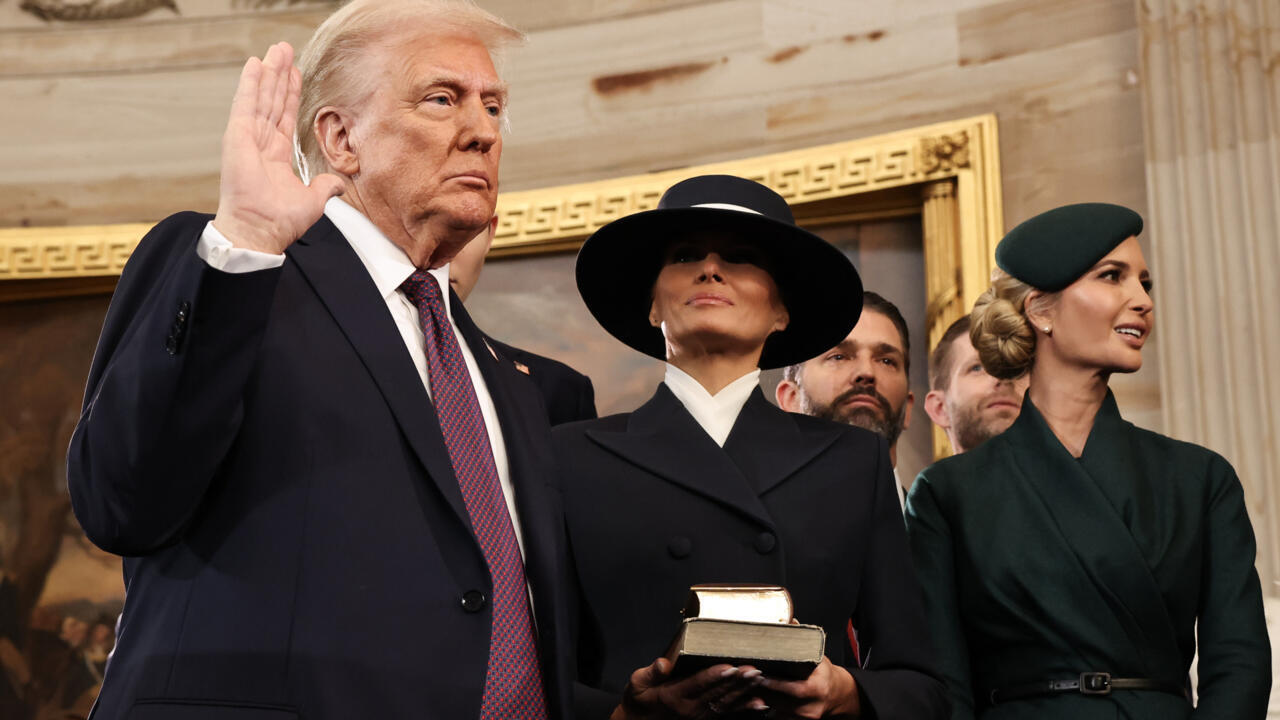- January 22, 2025
Key Moments from Donald Trump’s Second Inaugural Address

On Martin Luther King Jr. Day, President Donald Trump delivered his second inaugural address, laying out his vision for America’s future while doubling down on many themes central to his political career. The speech began with a sweeping declaration: “The golden age of America begins right now. From this day forward, our country will flourish.” Trump promised to make the U.S. the “envy of the world” and vowed that the country would “not be taken advantage of,” setting a tone of economic and cultural nationalism.
True to his campaign promises, Trump emphasized immigration as a central priority. He announced plans to declare a “national emergency at our southern border,” pledging to halt immigration and deport “criminal immigrants” at an unprecedented scale. He also hinted at upcoming executive orders targeting immigration and economic policies. Immigration has remained a divisive issue, with polls showing strong support for mass deportations among his base but significant opposition nationwide.
Trump outlined measures to reshape energy policy and trade. He declared a “national energy emergency,” vowing to rescind the Green New Deal and roll back the electric vehicle mandate. Additionally, he proposed an “External Revenue Service” to impose tariffs on foreign goods, framing these actions as a pathway to American “prosperity.” Despite these promises, Trump acknowledged challenges in addressing inflation and rising prices—issues consistently cited as top concerns for voters.
The president also waded into cultural issues, stating, “It will be U.S. policy that there are only two genders — male and female.” This aligns with his broader platform targeting LGBTQ+ rights, which became a flashpoint during the campaign. Trump framed these positions as part of his effort to restore traditional values, further energizing his base while alienating many others.
Amidst his own legal challenges, Trump vowed to reform the justice system, declaring, “The scales of justice will be rebalanced. The weaponization will end.” Facing multiple criminal charges, Trump positioned himself as a victim of systemic injustice and promised retribution, though specifics on his plans remain unclear.
In a notable moment, Trump extended gratitude to Black and Hispanic voters for their increased support, saying, “To the Black and Hispanic communities, thank you for the trust and love you gave to me. We set records, and I will not forget it.” While he achieved notable gains with Latino voters, his support among Black voters remained modest. Trump also referenced the significance of his inauguration taking place on Martin Luther King Jr. Day, vowing to make King’s dream a reality.
The address included several symbolic proposals that sparked reactions in the audience. Trump pledged to rename the Gulf of Mexico as the “Gulf of America” and to revert Alaska’s Mt. Denali back to its previous name, Mt. McKinley. These announcements drew mixed reactions, including visible laughter and headshakes from figures like Hillary Clinton, who was seated in the audience.
Reflecting on an assassination attempt during his campaign, Trump said, “I felt my life was saved for a reason. I was saved by God to make America great again.” He presented his survival as a divine mandate to lead and unite the country. He concluded his address by stating, “My legacy will be as a peacemaker and unifier. That’s what I want to be.” While this sentiment may seem at odds with his polarizing policies, Trump framed his presidency as one of transformation and redemption.
As Trump begins his second term, many of his proposals face resistance from both political opponents and the general public. His promises—ranging from mass deportations to pardoning January 6 rioters—have already sparked controversy. Whether he can deliver on these pledges remains uncertain. Trump’s address reaffirmed his vision of a bold, nationalist America. For his supporters, it was a rallying cry. For his detractors, it was a reminder of the divisions he has often amplified.

